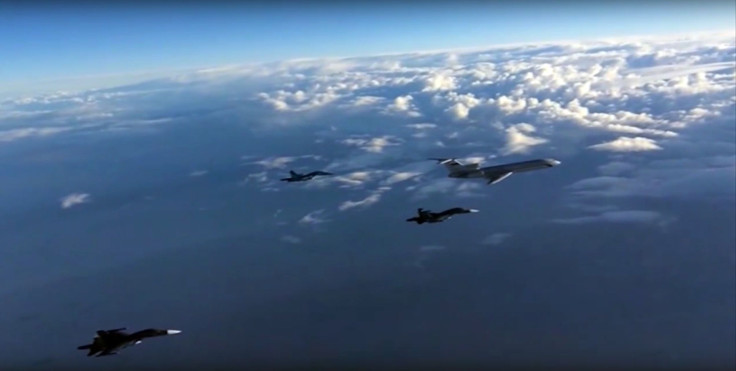Russia Harassing Iceland? Defense Ministry Says Claims 'Exaggerated'

Russia’s Ministry of Defense has dismissed Iceland’s accusation that three of its air force’s bombers flew dangerously close to a commercial plane embarking from the capital of Reykjavik as tensions continue to grow between Nordic nations and the superpower.
Iceland’s foreign ministry said three Tupolev Tu-160 bombers flew between roughly 6,000 and 9,000 feet below the Stockholm, Sweden-bound flight last Thursday. The government’s said a continuation of this practice could be dangerous for future commercial traffic
However, Russia responded by saying the claim was exaggerated and didn’t pose any real danger while making its own claim against Iceland its NATO ally, the United States.
"The claims of Iceland's pilots and diplomats concerning an allegedly dangerously close flight to a civilian airliner by Russia's long-range aircraft over the Norwegian Sea are no more than a figment of their imagination," ministry spokesman Maj. Gen. Igor Konashenkov said in a statement, according to Sputnik News.
And a spokesman for Russia’s ambassador in Iceland furthered that statement and alluded to a less than year-old Iceland-U.S. agreement to station troops in the small nation, according to the Guardian.
“It is quite understandable that this is how the matter is presented in the local papers. This is an excuse to open the (U.S.) naval base in Keflavik again,” spokesman Aleksei Chadisky said.
Keflavik was used as a U.S. base during World War II and later in the Cold War, and Russia may have fears of a return to such use after the U.S. agreed to station some troops “occasionally,” the Guardian reported.
The latest incident comes shortly after Nordic country Sweden said last week it was preparing for a potential Russian invasion of the military location and tourist destination island of Gotland in the Baltic Sea.
Joining Nordic neighbors Denmark and Finland, Sweden and Iceland have become concerned with what it calls increased Russian military activity in their airspace and the Baltic region, basing their concerns after Russia's role in the Ukraine conflict starting in 2014.
© Copyright IBTimes 2024. All rights reserved.











